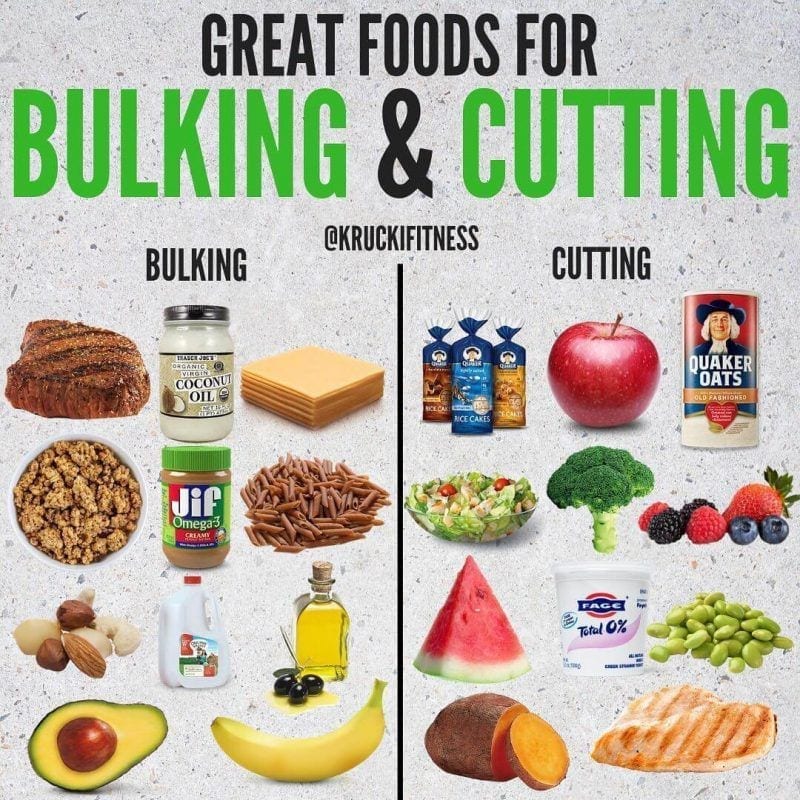Blitz News Digest
Stay updated with the latest trends and insights.
Calories: The Unsung Heroes of Your Bulk
Unlock the secret to effective bulking! Discover why calories are your best ally in building muscle and gaining strength.
Understanding Caloric Surplus: The Key to Effective Bulking
Understanding caloric surplus is essential for anyone looking to bulk effectively. A caloric surplus occurs when you consume more calories than your body burns over a certain period. This excess energy is then used for various bodily functions, including building muscle. Achieving a well-calculated caloric surplus is crucial for promoting muscle growth while minimizing fat gain. To start, you should determine your maintenance calories—the number of calories needed to maintain your current weight—by considering your age, weight, height, and activity level.
Once you have your maintenance calories, increase your daily intake by 250 to 500 calories for optimal bulking results. Monitor your weight and body composition weekly to ensure you are gaining muscle without accumulating excessive fat. Utilize calorie-dense foods, such as nuts, avocados, and whole grains, to help reach your target surplus more easily. Additionally, coupling this caloric increase with a structured strength training program is vital, as lifting heavy weights creates the stimulus necessary for muscle growth. Remember, a steady and gradual increase is key to effective bulking.

The Role of Macronutrients in Caloric Intake: Building Muscle the Right Way
The balance and composition of macronutrients—proteins, fats, and carbohydrates—play a crucial role in caloric intake, particularly for those aiming to build muscle effectively. Each macronutrient contributes uniquely to the body's energy balance and muscle growth. Proteins are vital for muscle repair and growth, providing the necessary amino acids that act as building blocks for new muscle tissue. On the other hand, carbohydrates serve as the primary energy source during workouts, ensuring you have the endurance and strength needed to push through your training. Finally, healthy fats support hormone production and overall health, making them essential for anyone focused on substantial muscle gain.
To achieve optimal muscle growth, it is essential to understand not just the quantity but also the quality of your macronutrient intake. A well-structured diet typically consists of the following proportions: 20-30% of total calories from protein, 45-65% from carbohydrates, and 20-35% from fats. This balance can vary based on individual goals and activity levels, but maintaining these ratios encourages a steady influx of energy while supporting muscle synthesis. Additionally, prioritizing whole, nutrient-dense foods over processed options can significantly enhance performance and recovery. Ultimately, understanding the role of macronutrients in your diet is key to building muscle the right way.
How to Calculate Your Daily Caloric Needs for Bulking Success
Calculating your daily caloric needs is essential for effective bulking. The first step is to determine your BMR (Basal Metabolic Rate), which is the number of calories your body requires at rest. You can use the Mifflin-St Jeor equation for this calculation: For men: BMR = 10 * weight(kg) + 6.25 * height(cm) - 5 * age(y) + 5
For women: BMR = 10 * weight(kg) + 6.25 * height(cm) - 5 * age(y) - 161. After finding your BMR, multiply it by an activity factor based on your daily lifestyle:
- Sedentary (little or no exercise): BMR * 1.2
- Lightly active (light exercise/sports 1-3 days/week): BMR * 1.375
- Moderately active (moderate exercise/sports 3-5 days/week): BMR * 1.55
- Very active (hard exercise/sports 6-7 days a week): BMR * 1.725
- Super active (very hard exercise/physical job): BMR * 1.9
Once you have your total daily energy expenditure (TDEE), you can adjust your caloric intake for bulking success. To effectively gain muscle, aim for a caloric surplus of approximately 250-500 calories above your TDEE. This surplus will support muscle growth while minimizing fat gain. Monitor your weight and adjust your calorie intake as needed; if you're not gaining weight after a few weeks, consider increasing your calories slightly. Remember to balance your macronutrients, focusing on proteins, carbohydrates, and healthy fats, to fuel your workouts and recovery. By systematically calculating and adjusting your caloric needs, you can set the stage for successful bulking.